Why do some rescued rabbits exhibit aggressive behavior?

Introduction:
In this article, I’ll delve into the intriguing world of rabbit behavior, specifically focusing on the puzzling phenomenon of rescued rabbits exhibiting aggressive tendencies. Rabbits are often adored for their gentle and timid nature, but not all bunnies conform to this stereotype. When rabbits are rescued from various situations, such as neglect, abuse, or abandonment, they may carry emotional scars that manifest as aggressive behavior.
Understanding the root causes of this aggression is crucial, not only for the well-being of the rabbits themselves but also for the safety and harmony of their human caregivers. We will explore the underlying factors, from past trauma to socialization challenges, that contribute to aggression in rescued rabbits, and offer insights into how these behaviors can be managed and transformed to ensure a more peaceful and fulfilling life for these remarkable creatures.
Because of past trauma and abuse:
Rabbits that have experienced past trauma and abuse often exhibit aggressive behavior as a coping mechanism. These unfortunate rabbits may have suffered physical or emotional harm in their previous environment, leading to a lingering fear and anxiety that can manifest as aggression. The traumatic experiences can include neglect, mistreatment, or even physical violence. Rabbits are highly sensitive creatures, and such mistreatment can leave lasting psychological scars.
In some cases, these rabbits may associate humans with the past trauma, leading them to react defensively or aggressively when approached. Their aggression may serve as a protective response, intended to keep potential threats at bay. To help these rabbits, caregivers must exercise patience, gentleness, and consistent positive interactions to rebuild trust and help them overcome their traumatic past.
Additionally, it’s essential to provide a safe and secure environment where they feel protected, reducing their anxiety and the need to display aggressive behaviors. Socializing them gradually and giving them time to acclimate to their new surroundings can be a critical step in their rehabilitation.
Because of fear and mistrust:
Fear and mistrust are often at the root of aggressive behavior in rescued rabbits. These emotions can stem from a variety of sources, including past mistreatment, unfamiliar surroundings, and changes in their environment. Fearful rabbits may become aggressive when they perceive a threat or believe they have no other means of defense. This fear and mistrust can be directed towards humans or other animals in their vicinity.
Rabbits are prey animals, and their natural instinct when feeling threatened is to fight or flee. In the case of rescued rabbits, past experiences may have reinforced this instinct, making them more likely to exhibit aggression when faced with perceived danger. To address this issue, caregivers need to focus on creating a secure and predictable environment. Slow, gentle interactions and consistent routines can help build trust and reduce fear over time.
It’s essential to remember that every rabbit is unique, and the specific triggers for fear and mistrust can vary. Observing their behavior, identifying stressors, and working to eliminate or mitigate them is crucial to addressing their aggression stemming from fear.
Because of inadequate socialization:
Inadequate socialization during a rabbit’s early life can lead to aggression in adulthood. When rabbits do not have the opportunity to interact with their own kind or humans during their developmental stages, they may struggle with social behaviors as they grow. This lack of socialization can result in rabbits being less accustomed to handling, grooming, or sharing their space with others.
Aggressive behavior can arise because rabbits may not know how to properly communicate their needs or boundaries. They might display aggression as a way to assert dominance, protect their territory, or express discomfort when approached. To address this issue, caregivers must invest time in socializing rabbits from a young age. This includes gentle handling, interaction with other rabbits (if possible), and positive reinforcement for desirable behaviors.
When dealing with rescued rabbits that have missed out on proper socialization, it’s crucial to approach the process gradually and patiently. Over time, they can learn to trust and interact positively with humans and other rabbits, reducing the likelihood of aggressive behavior due to socialization deficiencies.
Because of territorial instincts:
Rabbits are known for their territorial instincts, and this natural behavior can be a significant contributor to aggression, especially when they perceive intrusions into their territory. These territorial instincts are deeply ingrained in their nature, and in a rescue situation, rabbits may become aggressive when they feel their territory is threatened or encroached upon.
Territorial aggression can manifest in various ways, from nipping and growling to more severe forms of aggression. Caregivers should be mindful of respecting a rabbit’s space and providing them with a designated and secure area where they can establish their territory without feeling threatened. This can help reduce aggressive behaviors stemming from territorial disputes.
It’s important to note that rabbits have different individual thresholds for territorial behavior, and some may be more prone to aggression in defense of their space. Providing a predictable and secure environment can help mitigate this type of aggression, allowing rabbits to feel more at ease and less compelled to defend their territory aggressively.
Because of stress and anxiety:
Stress and anxiety are common triggers for aggressive behavior in rescued rabbits. The transition from a potentially challenging or traumatic environment to a new, unfamiliar one can be highly stressful for these sensitive animals. Stressors may include changes in their routine, the presence of other animals, loud noises, or even the absence of their previous caregivers.
When rabbits are stressed or anxious, they may resort to aggression as a means of coping or asserting control over their environment. This aggression can be directed towards humans, other rabbits, or objects in their surroundings. To address this issue, it’s crucial to create a calm and predictable environment for these rabbits.
Reducing stress and anxiety may involve establishing consistent routines, providing hiding spots or safe spaces, and minimizing disturbances in their living area. In some cases, consulting with a veterinarian or animal behaviorist may be necessary to develop a comprehensive plan for addressing and managing the stress-related aggression in rescued rabbits.
Because of health issues:
Health issues can also play a significant role in triggering aggressive behavior in rabbits. When rabbits are in pain or discomfort due to an underlying medical condition, they may become more irritable and prone to aggression. In some cases, rabbits may lash out defensively if touched in a painful area, or they may become generally more aggressive as a response to their overall discomfort.
Caregivers should always be vigilant and observant of any changes in a rabbit’s behavior, as it could be an indication of an underlying health problem. Common issues that may contribute to aggression include dental problems, urinary tract issues, gastrointestinal discomfort, or musculoskeletal pain. Timely medical attention and appropriate treatment can alleviate their pain and reduce aggressive tendencies.
Proper veterinary care, routine check-ups, and monitoring for any signs of illness or discomfort are essential to ensuring the well-being of rescued rabbits and addressing aggression caused by health concerns.
Because of hormonal changes:
Hormonal changes can also be a driving force behind aggressive behavior in rabbits. Unspayed or unneutered rabbits, particularly males, may become more territorial and aggressive during breeding seasons or when in the presence of potential mates. These hormonal shifts can lead to aggressive displays, including growling, biting, and aggressive mounting.
To address this issue, many caregivers opt to have their rabbits spayed or neutered, which can help reduce hormonal-driven aggression and improve overall behavior. Spaying and neutering also have the added benefit of preventing unwanted litters and certain health issues, making it a common practice in rabbit care.
For rabbits experiencing temporary hormonal aggression, it’s important to provide a calm and controlled environment during these periods and separate them from potential mates until their behavior stabilizes.
Because of environmental factors:
Environmental factors can significantly influence the behavior of rescued rabbits. Changes in their living conditions, the presence of other animals, or disruptions in their daily routines can all contribute to aggression. These factors can create a sense of unpredictability and insecurity, prompting rabbits to react defensively or aggressively.
To mitigate aggression related to environmental factors, it’s crucial to establish a stable and secure living environment for the rabbits. This includes providing a clean and comfortable enclosure, ensuring a consistent feeding schedule, and minimizing disruptions or stressors in their surroundings.
Caregivers should also pay attention to the introduction of new animals or changes in their environment, as these alterations can lead to territorial disputes and aggressive behavior. Gradual introductions and careful management of environmental changes can help reduce aggression in rescued rabbits.
Conclusion:
I hope this comprehensive exploration of the factors contributing to aggressive behavior in rescued rabbits has shed light on the complexities of their unique challenges. As we’ve seen, past trauma and abuse, fear and mistrust, inadequate socialization, territorial instincts, stress, health issues, hormonal changes, and environmental factors can all play pivotal roles in shaping a rabbit’s behavior. Recognizing these triggers is the first step in addressing and managing aggression effectively.
It’s essential for caregivers to approach these situations with patience, empathy, and a commitment to creating a safe and secure environment for these delicate creatures. By understanding their individual needs and past experiences, we can help rescued rabbits overcome their aggression, rebuild trust, and thrive in their new homes. With the right care and support, many of these rabbits can transition from fearful and aggressive to loving and well-adjusted companions, reaffirming the transformative power of compassion and dedication in the world of animal rescue.
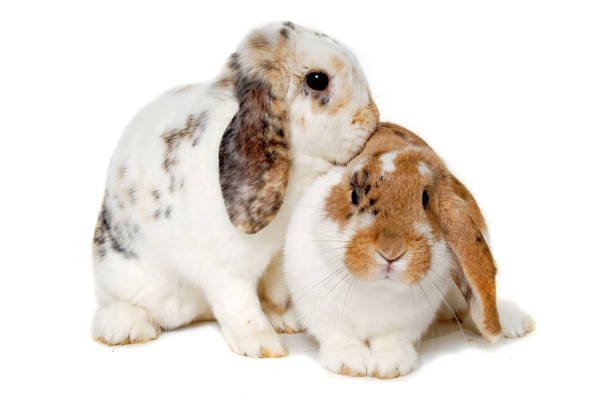
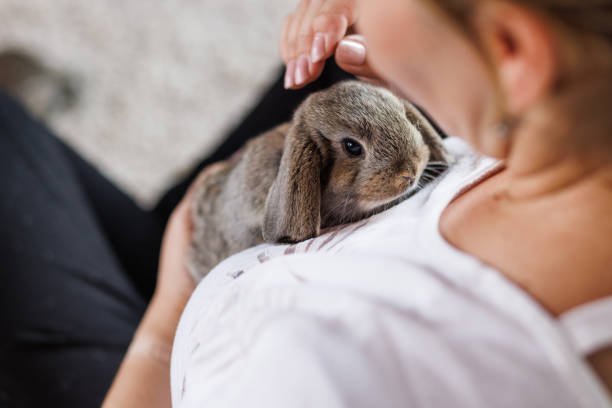
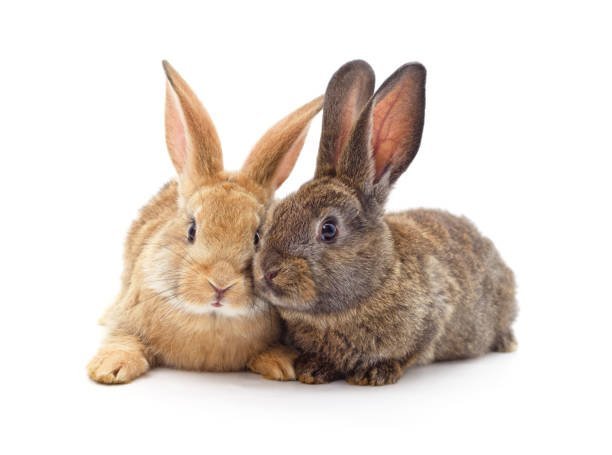
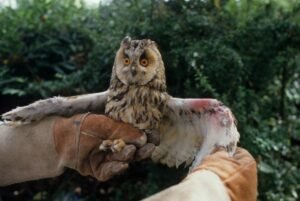




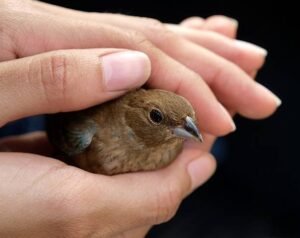

Post Comment